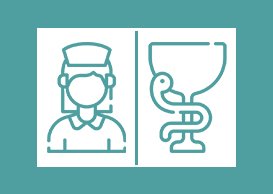Student Support Unit
This unit provides academic, psychological, and social support services to university students, to help them adapt to the university environment, and to overcome the difficulties that may face them and affect their academic performance.
Tasks of the Student Support Unit:
- providing academic support
- providing psychosocial support
- supporting outstanding and gifted students
- supporting students with special needs.
Academic Support
DAU provides academic support to its students in three main areas:
Academic delay
An academically delayed student is one who did not complete the requirements of the academic plan within the specified period, which leads to a delay in his graduation from the program.
Mechanisms for Identifying Academically Delayed Students
The head of the department,in coordination with academic advisors, compiles a list of the students who are late in completing their study plan, and identifies the reasons for their academic delay.
Mechanisms for Supporting Academically Delayed sSudents
1. The academic advisor shall develop a plan for each student for the following semesters that enables him/her to complete the program requirements within the specified period of time.
2. The academic advisor follows up on the student’s level of completion of the plan periodically and ensures that he/she adheres to registering courses according to the proposed plan.
3. At the end of each semester, the academic advisor submits a report on the progress of late students.
Programs Offered to Support Students
The ‘My Advisor, My Guide’ program, aims to educate students about the importance of the role of the academic advisor and his/her role and duties in facilitating the student’s academic life.
Implementation Responsibility
Head of the Department, Academic Advisor, Student Performance Committee, Student Support Unit
Academic Stumbling
An Academically struggling student is one with a GPA of less than 1 out of 4 after studying for a full academic year (2 semesters), who is placed under academic follow-up by his/her academic advisor.
Mechanism for Identifying Academically Struggling Students
At the end of each semester, the academic advisor specifies the number of academically struggling students, highlights the reasons for their stumbling and low averages, and puts forward appropriate proposals for each student.
- .
Mechanism for Supporting Academically Struggling Students
1. Failure reports are studied and a special plan is developed for each student separately to enable him/her to raise his academic average within a specific period.
2. The academic advisor assists the student in developing his study plan.
3. Periodic meetings are held with struggling students to follow them up, motivate them, and address their problems first-hand.
4. The academic advisor follows up on the student’s level of achievement and submits a report at the end of the semester.
Programs for Supportinhg Academically Struggling Students
- The ‘How Do I Raise my GPA’ Program.
Implementation Responsibility
Academic Advisor, Student Performance Committee, and Student Support Unit
.
Struggling in Academic Courses
A student who is struggling in a given course is one who receives low grades in this course, or who repeatedly fails the same course.
Mechanism for identifying students struggling in academic courses
Towards the middle of the semester, course instructors specify the number of students who received low grades in their course work, determine the reasons for failure, and provide appropriate solutions.
Mechanism for supporting students struggling in academic courses
1. activating faculty’s office hours to provide additional explanations to students and answer their questions.
2. providing remedial lessons in courses in which students frequently fail.
3. following up on students’ attendance and absence records and their discipline, since absence is a main factor affecting academic achievement.
Programs provided to support students struggling with academic courses
- ‘Peer Tutoring’ initiative.
Implementation Responsibility
Course instructors, friends of the Support Center, who are high achievers in academic courses.
.
Psychosocial Support
Acknowledging the fact that psychological and social problems negatively affect students’ academic achievement levels, Dar Al Uloom University is keen to support its students psychologically and socially through the following steps:
1. A student who suffers from psychological difficulties or disorders communicates directly with the Student Support Unit. Faculty members, Deans, Vice Deans, and employees of university departments and directorates can also refer any student who appears to need psychological support to the Student Support Unit.
2. The Support Unit refers cases in need of psychological support to specialists, where special sessions are set for each case, and based on the results of the sessions, recommendations are made to deal with each case individually.
3. The Student Support Unit submits these recommendations after their approval to the concerned authorities so as to take into consideration the student’s circumstances and understand his/her situation while maintaining the student’s privacy.
4. Enhancing students’ awareness of mental health through publications, emails, digital screens and other educational activities.
Support for Gifted and Talented Students
Recognizing the importance of academic excellence and its positive impact on students’ academic lives, Dar Al-Uloom University is committed to providing support and encouragement to its outstanding students.
Mechanism for Identifying Outstanding Students
The department head in coordination with academic advisors compile a list of students who have achieved a GPA of no less than 3.75 out of 4 at the end of each semester. These names are then forwarded to the Dean of the college.
Mechanism for Supporting Outstanding Students
- providing partial scholarships to outstanding students
- honoring outstanding students at college-level ceremonies.
- nominating outstanding students to participate in external, extra-curricular enrichment activities and events that enhance their knowledge and keep them updated with scientific advancements.
- nominating outstanding students to join student councils.
- involving outstanding students in providing tutoring sessions to their peers who may be struggling in certain subjects.
Programs for Supporting Outstanding students
- the Scholarship Program.
- The Peer Tutoring initiative, where high-achieving students participate in providing tutoring sessions to their peers in courses they may be struggling with.
Support for Students with Disabilities
The university endeavors to help students with disabilities by providing facilities and resources that assist them in adapting to the university environment and achieving success in their academic pursuits through encouraging them to participate in various programs of activities that help develop their diverse skills and integrate them with their peers on campus.
Mechanism for Supporting Students with Disabilities
- providing a range of support services for students with disabilities, including designating accessible parking spaces, elevators, suitable ramps at entrances, as well as barriers and sufficient spaces in the hallways and classrooms, and dedicated restrooms.
- A physician is available on a daily basis to provide medical support and follow-up on students with chronic illnesses when needed.
- allowing students’ personal assistants on campus as needed.
- encouraging their participation in sports and cultural activities, national events, and student clubs.
- giving guidance and advice when choosing suitable programs and majors.
- encouraging faculty members to diversify teaching strategies to actively engage students with disabilities in the classroom.
- facilitating the assessment process to accommodate their needs, such as providing extra time during exams, exempting them from electronic or written exams, formulating clear, straightforward exam questions, assisting them in reading questions, and providing a quiet and distraction-free testing environment as much as possible.

 College of Medicine
College of Medicine College of Dentistry
College of Dentistry College of Architectural Eng & Digital Design
College of Architectural Eng & Digital Design College of Business Administration
College of Business Administration College of Law
College of Law University Preparatory Program
University Preparatory Program Respiratory Therapy – Nursing
Respiratory Therapy – Nursing Student Affairs Department
Student Affairs Department General Directorate of Planning, Development, and Quality Assurance
General Directorate of Planning, Development, and Quality Assurance Central Library
Central Library